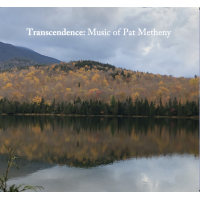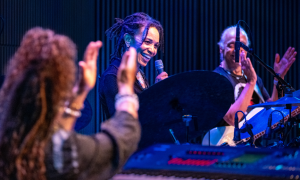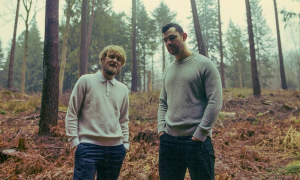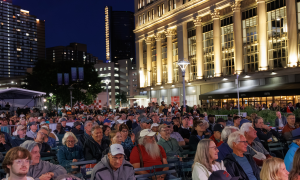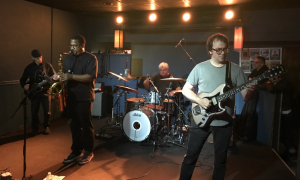Home » Jazz Articles » Live Review » Zbigniew Seifert Jazz Violin Competition 2016
Zbigniew Seifert Jazz Violin Competition 2016
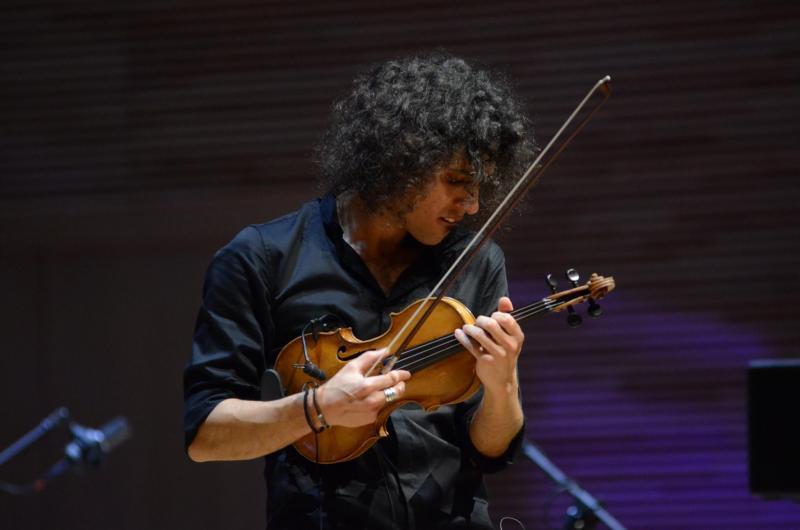
The Krzysztof Penderecki European Centre For Music, Luslawice
Manngha Museum Of Japanese Arts & Technology
KrakЁ®w, Poland
August 24-27, 2016
The violinist

Zbigniew Seifert
violin1946 - 1979
Starting out as an alto saxophonist under the spell of

John Coltrane
saxophone1926 - 1967

Janusz Stefanski
drumsb.1946

Mark Feldman
violinOn the Wednesday night, the first batch of the ten entrants each presented a short set featuring three pieces, all playing in front of the Pawel Kaczmarczyc Audiofeeling Trio. Yes, it's a violin competition, but cellos are actually allowed, with Krzystof Lenczowski, a local son of KrakЁ®w, being the first of the competition's two string-deviants. He offered a pair of originals, strumming up at the neck, making a folksy prance, striding and swaying into Seifert's "On The Farm," as Kaczmarczyc dampened his strings under the piano lid. Florian Willeitner, from Germany, also began with one of his own tunes, followed by a Seifert arrangement, and then a reading of that composer's "Quo Vadis." Willeitner's short, grainy strokes led into a melody, drawn out slowly in a bright fusion style, then into a sweetly skating solo. The middle arrangement was blighted by a poorly chosen pedal effect, billowing as he plucked out an introduction, thickly layered with chorus lapping. The trio sat out for a very soft pizzicato section, before Willeitner opened up "Quo Vadis" alone, before his colleagues gradually re-entered, building up some passion to close. Within seconds of his set beginning, Frenchman Mathias LЁҰvy established a pacing tension, paying greater attention to physically inhabiting the stage, and projecting his sound. He confidently stepped across time-lines, phrasing and flying freely, as he visibly transmitted energy towards the trio, who responded with greater engagement, coaxed into upping the intensity. LЁҰvy was unusual in his concentration on the ancient tradition of gypsy jazz, which was largely ignored by his fellow entrants, in favour of a vaguely fusion-dominated orientation. This was to work against him in the judging, a few days later, it seemed. Another entrant who understood the value of an individualist presentation was Mario Forte, delivering at speed, with great dexterity, flamboyance and a predilection for decorative flourishes. For his arrangement of "All The Things You Are," Forte soloed whilst the trio made brief percussive punches, before the tune took off on a familiar glide. He too encouraged a hiking of energy within the trio, goading them into taking their own rousing solos. Forte set up some plucky loop tracks, adding his own sliding basslines, topped by a 'conventional' solo, sawing swiftly, bending and stretching phrases, then adding a warping effect to climax.
Thursday brought a second bunch of fiddlers. Another Polish contestant, Marcin Halat, operated a suspended circulatory movement, his own middle ballad piece being very conventional in nature. For Seifert's "Pinocchio," he took the melody as an ongoing solo, continually in flight, becoming stormy as he increased the string friction. This was one of the best Seifert realisations so far. The Austrian Florian Sighartner tipped in klezmer hints for his abstracted original, crammed with much vibrato and slurring of phrases. Stephan Braun was the other cellist entrant, hailing from Germany. He began by playing his axe like a guitar, across his knees, boldly plucking, as

Dave Brubeck
piano1920 - 2012

Stephane Grappelli
violin1908 - 1997

John Coltrane
saxophone1926 - 1967
The Friday finals arrived with the initial entrants being cut in half, chopped down to five remaining artists. Smoczynski opened, providing a bold start, upping the game with some searing runs. His first strafe was equivalent to one long solo that never let up, but eventually there was a recline into ballad territory, then jumping back into a racer for the conclusion, violin in dialogue with drums on "Turbulent Plover." This same number appeared straight away, to open Braun's set, in a cello incarnation. He moved towards a sparse pizzicato section, then inflicted a battering action on the strings with his bow, creating a percussive momentum, making curt, contained cuts, and then rapping the instrument's body with his fingertips. This was the time to extend outwards, knuckling the real surface. Willeitner played "Nardis," penned by

Miles Davis
trumpet1926 - 1991

Dave Holland
bassb.1946
After what was surely a lengthier-than-expected deliberation, the three judges reached their decision, late into the night. There was some degree of disagreement and controversy, as there was a lack of clarity and decisiveness in the final results. The three main cash prizes were given, but the second place was divided between two competitors. One player who emerged with nothing tangible was Mathias LЁҰvy, who was actually one of your scribe's chief favourites to win. It's also arguable that the first and second prizes should have been contested by Smoczynski and Forte, with Requesens and Willeitner tussling between themselves for the 3rd Prize.
1st Prize: Mateus Smoczynski
Joint 2nd Prizes: Apel.les Carod Requesens & Florian Willeitner
3rd Prize: Mario Forte
Following the announcements of the prizes, the Saturday night gala concert offered a chance to indulge in pure artistry, now that the technical, competitive pressures had relaxed their grip. The winners were set to appear as soloists with the Konglomerat Big Band, at Manngha in KrakЁ®w. This was a relatively small gathering, with much of the audience having some kind of relationship with the competition, but it was more of a natural gig-scenario, where the assembled could directly immerse themselves in the music, all tensions having now been released. Unusually, all of the band's horns were arrayed in a large semi-circle, this being their accustomed set-up rather than a pattern enforced by lack of stage space. It made a refreshing change from the standard reeds/trombones/trumpet tiered ranks. Forte appeared for an Afro-centric number, establishing a variety of thrusts in a single solo, sawing and sliding with fluid outbursts. Requesens made an opening foray that was quite jarring, but this could have been due to the head-jellying volume of the massed forces. Willeitner's "Song For Christopher" was muted, with the band's glowing trombones taking up much of the attention, the violinist becalmed in a tranquil state. Smoczynski's "Where Are You From?" was a spirited rendition, ending with some emphatic bass, and a lightly stroked violin solo. Following three evenings of hearing the violinists being backed by the Audiofeeling trio, the big band framework sounded highly refreshing. There is no way that a listener would have ordinarily chosen to subject themselves to so much violin action over a period of four nights, but this was a competition, of course, and some very specialised listening rules were in place. Nevertheless, it was almost revolutionary to remember, following a few days of isolation at the Penderecki Centre, that brazen horns still existed in the outside world!
Photo Credit: The Krzysztof Penderecki European Centre for Music
Tags
Live Reviews
Martin Longley
Poland
Krakow
zbigniew seifert
John Coltrane
Janusz Stefanski
Mark Feldman
Dave Brubeck
Stephane Grappelli
Miles Davis
Dave Holland
Comments
PREVIOUS / NEXT
Support All About Jazz
 All About Jazz has been a pillar of jazz since 1995, championing it as an art form and, more importantly, supporting the musicians who make it. Our enduring commitment has made "AAJ" one of the most culturally important websites of its kind, read by hundreds of thousands of fans, musicians and industry figures every month.
All About Jazz has been a pillar of jazz since 1995, championing it as an art form and, more importantly, supporting the musicians who make it. Our enduring commitment has made "AAJ" one of the most culturally important websites of its kind, read by hundreds of thousands of fans, musicians and industry figures every month.
Go Ad Free!
To maintain our platform while developing new means to foster jazz discovery and connectivity, we need your help. You can become a sustaining member for as little as $20 and in return, we'll immediately hide those pesky ads plus provide access to future articles for a full year. This winning combination vastly improves your AAJ experience and allow us to vigorously build on the pioneering work we first started in 1995. So enjoy an ad-free AAJ experience and help us remain a positive beacon for jazz by making a donation today.

Krakow
Concert Guide | Venue Guide | Local Businesses
| More...
Krakow Concerts
Sep
26
Fri
Old Metropolitan Band
Globus Music Club
KrakЁ®w, Poland
Sep
27
Sat
Chuck Frazier Trio
Globus Music Club
KrakЁ®w, Poland
Oct
14
Tue

Rachel Eckroth Trio
Nospr
Katowice, Poland
Oct
15
Wed
Kovacs
Klub Studio
KrakЁ®w, Poland
Oct
16
Thu

Diana Krall
House Of Music And Dance
Zabrze, Poland
Oct
17
Fri

Chris Botti
National Polish Radio Symphony Orchestra
Katowice, Poland
Oct
20
Mon

Sting
Tauron Arena
KrakЁ®w, Poland
Oct
21
Tue

Sting
Prezero Arena Gliwice
Gliwice, Poland
Oct
23
Thu

Marcus Miller - Ikony Jazzu
Cavatina Hall
Bielsko-Bia?a, Poland
Jan
18
Sun

Gregory Porter
Nospr
Katowice, Poland

Krakow
Concert Guide | Venue Guide | Local Businesses | More...
Sep
26
Fri
Old Metropolitan Band
Globus Music ClubKrakЁ®w, Poland
Sep
27
Sat
Chuck Frazier Trio
Globus Music ClubKrakЁ®w, Poland
Oct
14
Tue

Rachel Eckroth Trio
NosprKatowice, Poland
Oct
15
Wed
Kovacs
Klub StudioKrakЁ®w, Poland
Oct
16
Thu

Diana Krall
House Of Music And DanceZabrze, Poland
Oct
17
Fri

Chris Botti
National Polish Radio Symphony OrchestraKatowice, Poland
Oct
20
Mon

Sting
Tauron ArenaKrakЁ®w, Poland
Oct
21
Tue

Sting
Prezero Arena GliwiceGliwice, Poland
Oct
23
Thu

Marcus Miller - Ikony Jazzu
Cavatina HallBielsko-Bia?a, Poland
Jan
18
Sun

Gregory Porter
NosprKatowice, Poland

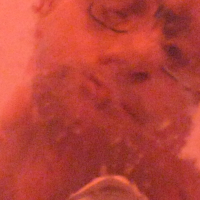



 Buy Now
Buy Now



